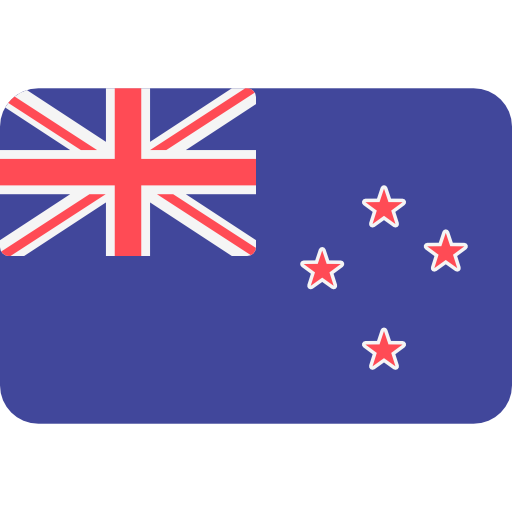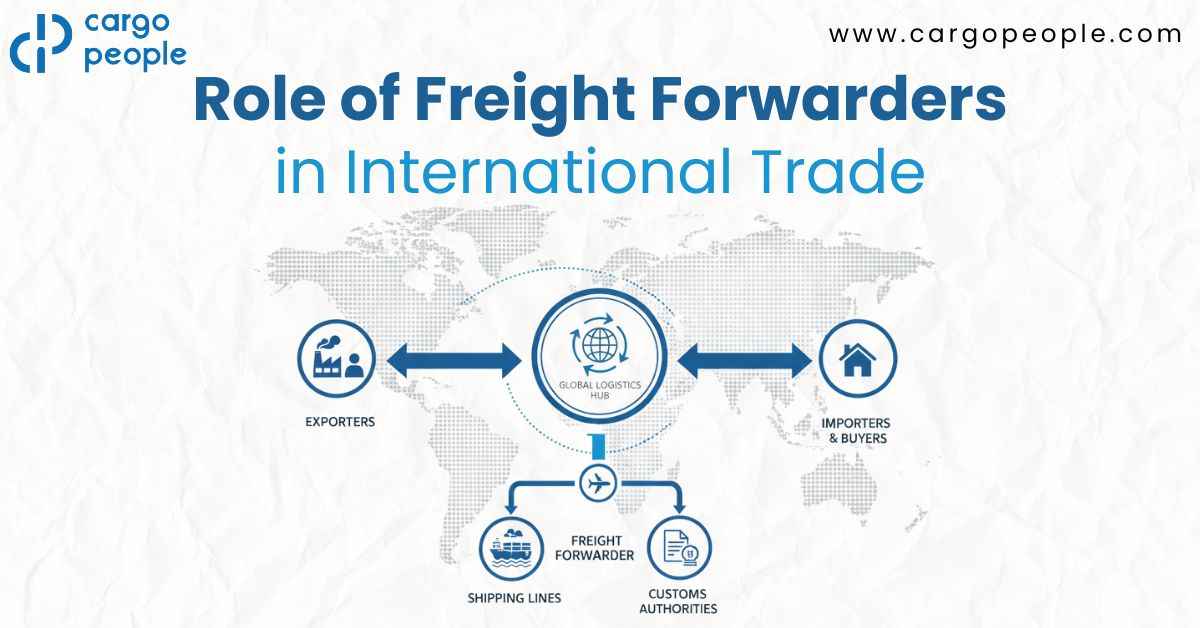When Rahul Mehta, a textile exporter from Tirupur, received his biggest order yet — 12 containers of apparel bound for Spain — he thought he was on top of the world.
But soon after dispatch, his containers got held up at Nhava Sheva due to a missing inspection clearance. The vessel sailed without them. The result? A three-week delay, ₹4 lakh in demurrage, and an unhappy overseas buyer.
Exhausted, Rahul turned to a professional freight forwarder. Within two months, his export flow became seamless — automated documentation, consolidated bookings, and transparent tracking. His margins improved by 12%.
This story is not rare. Every exporter — whether shipping auto parts from Pune or handicrafts from Jaipur — learns that the difference between a delayed shipment and a smooth delivery often comes down to one thing: a reliable freight forwarder.
Understanding the Role of Freight Forwarders
At its core, a freight forwarder is your logistics architect. They don’t just move goods — they design efficient supply chain journeys that balance cost, time, and compliance.
A Simplified Way to Understand It
Think of them as the “travel agents” of global trade. Just as a travel agent plans your trip — flights, hotels, and visas — a freight forwarder manages every element of your shipment: booking cargo space, handling customs, ensuring insurance, and coordinating delivery at the destination.
What a Forwarder Actually Does
-
Plans multimodal routes: Chooses the smartest path — sea, air, rail, or a combination — to meet deadlines and budgets.
-
Negotiates freight rates: Uses industry relationships with carriers and ports to get better deals than individual exporters can.
-
Handles documentation: Prepares invoices, packing lists, Bills of Lading, and ensures compliance with DGFT and CBIC norms.
-
Manages customs clearance: Works with licensed CHAs to avoid red-channel delays.
-
Provides tracking & visibility: Offers real-time shipment status updates.
-
Ensures cargo safety: Arranges insurance and quality handling to minimize losses.
Without a forwarder, even experienced exporters struggle to navigate complex port and customs processes. With one, international trade becomes structured and predictable.
Why Indian Exporters Rely on Freight Forwarders
India’s exporters are the backbone of our economy — from Morbi’s ceramic factories to Surat’s textile units and Ludhiana’s bicycle makers. But few have the internal bandwidth to manage end-to-end shipping compliance, documentation, and customs negotiations.
Here’s how freight forwarders make a tangible difference:
-
Expertise in Documentation: They ensure no form is missed — from Shipping Bills on ICEGATE to Certificates of Origin for Europe.
-
Simplified Customs Navigation: They coordinate directly with CBIC systems, RMS procedures, and EDI ports.
-
Negotiation Power: They consolidate bookings for multiple clients, giving them rate leverage that small exporters can’t access individually.
-
Compliance Confidence: They stay updated on DGFT notifications, FTP amendments, and IATA shipping codes.
-
Peace of Mind: You can focus on production, client servicing, and business growth — not paperwork and port queues.
In short, a freight forwarder helps Indian exporters grow globally without drowning in logistics complexity.
Key Services Offered by Freight Forwarders
Freight forwarding isn’t just about transport — it’s a full-stack logistics solution designed around your business goals.
Core Services You Can Expect
-
International Freight Booking: Securing space on ships, flights, or rail based on the best routes and rates.
-
Customs Brokerage Support: Handling declarations, valuation, and document filing through ICEGATE.
-
Cargo Consolidation (LCL): Combining smaller shipments from multiple exporters to reduce costs.
-
Door-to-Door Shipping: Managing first-mile pickup, port delivery, overseas clearance, and final dispatch.
-
Insurance & Claims Management: Arranging marine insurance and supporting claim settlements.
-
Warehousing & Distribution: Short-term storage at bonded facilities to manage timing flexibility.
-
Digital Logistics Tracking: Visibility through integrated tracking dashboards.
Cargo People, for instance, integrates all of these under one roof — enabling exporters to ship confidently while reducing cost leakage and time loss.
The Freight Forwarding Process — From Pickup to Delivery
A well-structured process minimizes delays and ensures compliance at every stage:
| Stage | Activity | Responsibility |
|---|---|---|
| 1. Booking & Planning | Selecting carriers, routes, and transit schedules | Forwarder + Exporter |
| 2. Export Documentation | Invoice, packing list, B/L, COO, Shipping Bill | Forwarder |
| 3. Customs Clearance | Filing via ICEGATE, RMS assessment | CHA / Forwarder |
| 4. Port Operations | Container stuffing, VGM filing, gate-in | Exporter + Port Agent |
| 5. Transit & Tracking | Vessel or flight movement monitoring | Forwarder |
| 6. Destination Clearance | Import customs + last-mile delivery | Destination agent |
Human takeaway:
When a forwarder manages this chain, exporters don’t have to worry about late filings, missed vessels, or delayed payments — each link of the chain is handled professionally and proactively.
Top Indian Ports by Container Volume (FY 2025)
| Port | FY 2025 TEUs (Million) | YoY Growth % | Major Trade Routes |
|---|---|---|---|
| JNPA (Nhava Sheva) | 7.30 | +13.5 | India–Europe, USA, Middle East |
| Mundra (APSEZ) | ~6.9 | +11 | India–China, Africa, Europe |
| Chennai | 1.7 | +4 | India–Southeast Asia |
| Hazira / Pipavav | 0.9 | +6 | India–Africa, Gulf |
| Kolkata / Haldia | 0.8 | +3 | India–Bangladesh, ASEAN |
Interpretation:
JNPA and Mundra handle almost 70% of India’s containerized exports. Freight forwarders choose between them depending on connectivity, cost, and shipping line availability. Having a forwarder ensures you get the earliest vessel slot, avoiding the high cost of idle containers.
Air vs Sea vs Rail Freight — Cost & Speed Comparison
| Mode | Transit Time (India → Europe) | Indicative Cost/kg (₹) | Ideal For |
|---|---|---|---|
| Air Freight | 3–5 days | 280–400 | Urgent or high-value goods |
| Sea Freight | 22–30 days | 50–80 | Bulk and heavy shipments |
| Rail / Multimodal | 12–15 days | 100–130 | Intra-Asia & regional freight |
Interpretation:
A freight forwarder doesn’t just ask “how fast?” but “how smart?”. By combining air for urgent items and sea for bulk cargo, they create hybrid models that balance time, cost, and reliability.
Common Logistics Challenges & How Forwarders Solve Them
1. Port Congestion
During peak season, ports like Mundra can have container queues stretching for hours. Forwarders manage off-dock stuffing and slot pre-booking to ensure cargo doesn’t miss deadlines.
2. Rising Freight Rates
In volatile times (like post-pandemic trade surges), forwarders use long-term contracts and rate benchmarking tools to lock in stable prices.
3. Customs & Documentation Errors
One missing entry in a Shipping Bill can hold containers for weeks. Forwarders have in-house CHA partners to ensure digital filing is timely and compliant.
4. Cargo Damage or Loss
Forwarders handle packaging inspection, labeling compliance, and arrange insurance — so even if something goes wrong, financial safety nets are in place.
5. Limited Transparency
Most professional forwarders now offer real-time dashboards, letting you know exactly where your container is and when it will clear customs.
Navigating Regulatory Compliance
International shipping isn’t just about moving cargo — it’s about moving it legally and transparently.
Freight forwarding in India operates under the umbrella of several regulatory bodies:
-
DGFT (Directorate General of Foreign Trade): Sets Export–Import Policy and IEC rules.
-
CBIC (Central Board of Indirect Taxes & Customs): Governs customs laws, RMS, ICEGATE operations.
-
IATA & IMO: Set standards for air and marine cargo safety.
-
FIEO (Federation of Indian Export Organisations): Helps MSMEs comply with export documentation and trade finance.
A licensed freight forwarder ensures all your shipments meet these compliance standards — minimizing audit risks and protecting your exporter credibility.
When Compliance Goes Wrong — A Lesson for Exporters
In 2024, a Mumbai-based auto parts exporter faced a ₹9 lakh penalty when their forwarder failed to file the correct HS code under the updated DGFT schedule.
Their containers were held for 17 days, and the European buyer canceled the Letter of Credit.
Such issues can devastate small businesses. A responsible forwarder continuously updates digital filing templates, double-checks codes, and coordinates with customs brokers to avoid such mistakes.
Moral: In international trade, ignorance isn’t cheap — compliance is protection.
Mini Business Story — Turning Air Freight Costs into Profits
Sneha Exports Pvt. Ltd., a Jaipur-based handicraft exporter, shipped 3 CBM monthly by air to Germany. A Cargo People logistics consultant reviewed her data and suggested LCL sea freight consolidation instead.
The result? Transit increased by 10 days, but per-kg cost dropped from ₹350 to ₹70 — saving ₹9 lakh annually.
She reinvested that savings into product packaging and digital marketing, boosting her orders by 20%.
That’s the hidden power of a forwarder — optimizing logistics so your business can grow.
The Future of Freight Forwarding in India
India’s logistics industry is evolving fast. With trade corridors expanding under initiatives like PM GatiShakti, Sagarmala, and Bharatmala, forwarders are becoming digital trade enablers — not just transport coordinators.
Expect to see:
-
AI-driven rate tracking and route optimization.
-
Blockchain-based shipment visibility.
-
Sustainability models to cut carbon emissions in transport.
-
Integrated EPR & ESG compliance tracking.
By 2029, the Indian logistics sector is projected to reach USD 317 billion, powered by automation and smarter freight systems.
For exporters, this means your next logistics partner isn’t just moving cargo — they’re moving your business forward.
Conclusion — Why Cargo People Makes a Difference
International trade is no longer about shipping goods — it’s about shipping confidence.
A good freight forwarder transforms chaos into coordination, risk into reliability, and uncertainty into savings.
Cargo People brings together decades of global freight experience, deep Indian regulatory understanding, and strong carrier partnerships — ensuring your shipment is handled with precision, transparency, and care.
📞 +91 78350 06245 | 📧 Cha@cargopeople.com
Book a Consultation with Cargo People Logistics
FAQs
1. What does a freight forwarder do for exporters in India?
They plan, book, document, and manage the entire export shipment process — ensuring cost and compliance efficiency.
2. Is a freight forwarder different from a customs broker?
Yes. A forwarder handles overall shipping logistics; a customs broker focuses only on clearance documentation.
3. How can I reduce freight costs from India to Europe?
Use LCL consolidation, plan shipments in off-peak seasons, and combine sea + air modes for balance.
4. What documents are required for exports from India?
Shipping Bill, Commercial Invoice, Packing List, Bill of Lading, Certificate of Origin, and Insurance Certificate.
5. How long does customs clearance take in India?
Typically 1–2 days for sea and 6–12 hours for air cargo when pre-filed digitally.
6. Which are India’s busiest export ports?
JNPA (Nhava Sheva) and Mundra remain the top-performing ports by volume and connectivity.


 United Kingdom
United Kingdom
 Germany
Germany
 Argentina
Argentina
 Australia
Australia
 Canada
Canada
 New Zealand
New Zealand
